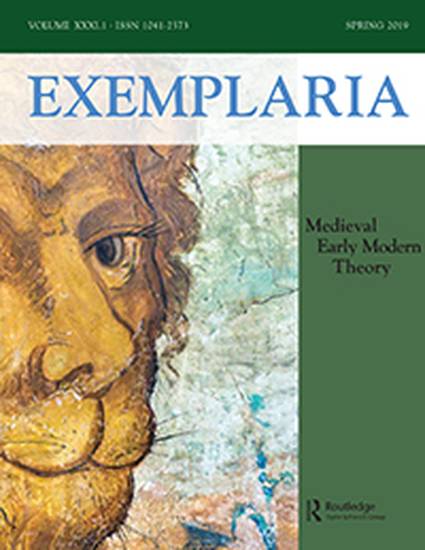
Article
Looking Awry at St Erkenwald
Exemplaria: Medieval, Early Modern, Theory
(2011)
Abstract
Saint Erkenwald has always invited historicist readings. An approach that explores the poem's libidinal investments and ethical blind spots from outside its own doctrinal assumptions can help us better understand both its dynamics and its place in our own critical discourse, in which we strategically adopt, but do not necessarily share, the poet's eschatological assumptions. The “daunger” experienced by Erkenwald in his confrontation with the pagan judge, his mirror image in the poem, derives from the apparent failure of divine revelation to “unlouke” the mystery of what ought to be done in the circumstances, while the judge's account of his probity and righteousness contains its own contradictory elements. The poem's reliance on one formal procedure (i.e., baptism) to resolve its ethical deadlock over the fate of the virtuous pagan is undermined by its own structural symmetries, which tend to erase the kind of distinction that the sacrament is said to confer.
Disciplines
Publication Date
January 4, 2011
DOI
10.1179/104125711X12946752336109
Citation Information
Frank Grady. "Looking Awry at St Erkenwald" Exemplaria: Medieval, Early Modern, Theory Vol. 23 Iss. 2 (2011) p. 105 - 125 Available at: http://works.bepress.com/frank-grady/10/
